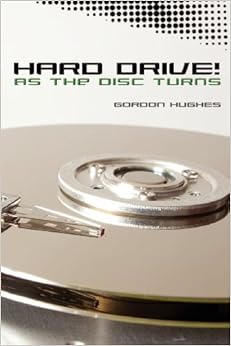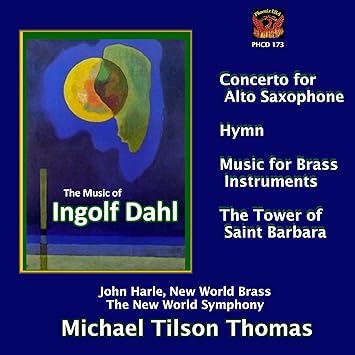The History Book Club to which I belong discussed Our Kids by Robert Putnam last week. In the process, several described their own high school experience, complementing Robert Putnam’s description of many school experiences in the book. I thought I might share something about growing up in west Los Angeles and attending public schools there from 1946 until high school graduation in the summer of 1955. Los Angeles was a unique place to grow up in that time.
My parents, European immigrants, moved to Los Angeles in late 1945 and bought their first car and first house in early 46. The house had two bedrooms and one bathroom, typical of the 1930s houses in our lower middle class price range. I should not have expected to grow up in so vibrant a community.
As an 8 year old, my first Los Angeles friends were the kids of my age on my block.
 |
| Paul's Dad, 1912 |
- Paul (who also went to school with me). His parents, both school teachers, were divorced, and Paul lived with his mother and older sisters. His father, a college graduate, also had a law degree, but never practiced law. His father was very unusual in that he had been on the 1912 U.S. Olympic team with Jim Thorpe, and had brought home the gold medal for the high jump. His father was the best U.S. athlete in the Decathlon and qualified for the 1916 Olympics in that event as well as the high jump, but those games were not held (due to the outbreak of World War I). Paul did not graduate from college, eventually opened and operated his own camera store.
- Dean, my next door neighbor, went to the MGM studio school. His parents were also divorced, and he lived with his mother and older brother. His father -- when I met Dean -- was staring as Curly in the original Broadway production of Oklahoma (in 1937 he had sung the role of the prince in Snow White -- Disney's first feature length film). Dean and his brother Guy were then already professional actors, Dean the more successful of the two; he would win a Golden Globe a couple of years after we met for his performance in Gentleman’s Agreement. It was through Dean and Guy that I met such actors as Margaret O’Brien, Claude Jarman Jr., Lionel Barrymore and Allen Ladd. NeitherDean nor his brother graduated from college, but both went on to successful acting careers – some 300 credits on the International Movie Data Base (both had starring roles in TV series that counted as single IMDB entries). His brother later started an acting school.
 |
| Dean's Dad, 1945 |
- Allen: I don’t remember his parents’ background. Allen did well through college, becoming President of the Young Democrats and Secretary General of the Model UN in his senior year at Berkeley. Graduating he became a peace activist, going to jail for a year in the mid 60s after an anti Vietnam rally; that turns out to be a good career move in the peace movement, and he had a long career in the American Friends Service Committee. Along the line he picked up a master’s degree and taught classes at Berkeley.
- Anthony: His parents were divorced, and both remarried. There were thus four parents -- three with PhDs and a full professor at USC (who did not have a PhD). Anthony lived with his mother and stepfather in apartments in our neighborhood. His stepfather, Ingolf, I knew well, in part because he took our gang of kids hiking, camping and mountain climbing from the sixth grade to the summer between 11th and 12th grades. Included among Ingolf’s friends that I remember: Nobel Laureate novelist Thomas Mann, Tommy Dorsey, Benny Goodman, Victor Borge, Igor Stravinsky, Arnold Schoenberg, Aaron Copeland, Gertrude Laurence, and Leonard Bernstein. Ingolf was a department head at Tanglewood, Director of the Ojai Music Festival, Director of the Evenings on the Roof concert series, conductor of the Borge radio show orchestra, and ghosted some of Schroeder’s piano playing in the Peanuts TV cartoons. Michael Tilson Thomas (Ingolf’s student and now conductor of the San Francisco Symphony Orchestra) conducted the orchestra for the tribute recording of Ingolf’s works issued after Ingolf’s untimely death. Anthony’s mother’s was a friend of Ralph Bunch from their days as undergraduates at UCLA. (He was, of course, the top U.S. official in the UN and a Nobel Peace Prize winner). Anthony’s biological father was the head of the script department at MGM, and wrote children’s books after he retired. Anthony got a teaching credential and a PhD, taught for a while a Michigan State, but moved to England where he ended his career as the chair of the English Department of the American High School in London. He has published several books since retiring from teaching.
- Dick: His parents moved from South Dakota to LA where his father worked in the Douglas Aircraft Co. factory; I believe his work was highly skilled and involved making models for parts of Douglas airplanes that would be part of the production process. I think both parents were high school graduates. Dick got a PhD in Neuroanatomy, got tenure in the USC medical school faculty, went back to get a second PhD in psychology and then worked as a consulting psychologist.
- Mike’s parents were high school grads and divorced; he lived with his Mom and younger brother. Mike decided to be an actor and dropped out of college, taking acting and dance classes instead. After a personal crisis he changed religion, finished college, and went to divinity school, getting a graduate degree and becoming a Presbyterian minister. However, later he spent time in Japan studying acting technique for the No theater; he qualified in Japan for women’s roles in No drama (not many Americans did that). He has published at least one successful book on church liturgy. He worked as a minister for most of his adult life eventually leading a large church. Now retired, he performs occasional on the stage of a local professional theater.
| Luana in Coppola's first film |
 |
| Gordon's memoir |
- Luana: I didn’t know her parents. She started her career as an actress immediately after high school. She was Peter Fonda’s love interest in Easy Rider, starred in Francis Ford Coppola’s first film, and was the girl under the pendulum In The Pit and the Pendulum (81 IMDB acting entries before her untimely death). She starred in the title role in the national touring company of The Reluctant Debutant and starred across from Rex Harrison in a Broadway play that lasted only one night. She later had three scripts that she wrote made into films. She studied acting with Jeff Corey. (Soon after high school, not yet supporting herself by acting, she had a job as a messenger. She convinced a fellow messenger to come along with her to acting class on evening; thus began the career of Jack Nickolson.)
- Gordon: I didn’t know his parents. Gordon got an undergraduate degree and a PhD from Cal Tech. His published memoir tells about the important role he played at Seagate in the invention of the personal computer hard drive. He continues to do research and development of computer memory technology.
- Mark: His parents were as far as I knew high school grads; his father was at one time a professional musician. His uncle was with a professional musician with the San Francisco Symphony Orchestra. Mark got a bachelor and masters degree from U.C. Berkeley. He eventually became the head of the metallurgy lab at Sandia and then the head of the special projects division. I understand that late in his career he became a well known volcanologist, studying volcanoes in Hawaii and the Mt. St. Helens eruption.
The basic point is that our middle class neighborhood had good schools. My friends and I had many role models provided by parents and parents’ friends. Some school friends went on to higher education some did not. All of my close school friends seem to have done well in their chosen careers.
Let me add a few more entries from my college days (1955 to 1959) at UCLA. They too indicate the richness of the Los Angeles environment in which I grew up.
- Chris, a friend made at UCLA whose father had a brief period in the limelight as Elsberg's Psychiatist when the break in of his office by President Nixon's "plumbers" was revealed to the public. These events ruined his practice and embittered him for life. Still, to me he represented the important and useful role that one could assume in adult life with the proper education. Chris went on to a long, successful career as an engineer.
- Jimmy, a Japanese America who was sent to school in Japan before World War II, and got stuck there during the war. He joined the U.S. army in Japan after the war and served in Korea. He Chris and I were inseparable in Engineering school, graduated together, and he went on to a long career as an engineer.
- Myron Tribus taught me Thermodynamics at UCLA, and his teaching approach influenced my own teaching. His accounts of his experience doing operations research during World War II I think influenced my own career choices much later. He left UCLA to become Dean of Engineering at Dartmouth College's Thayer School of Engineering. He became Assistant Secretary of Commerce for Science and Technology in the Nixon administration, and since President Nixon did not have a formal Science Adviser, served in that role as well. He then became Senior V.P. for Research & Engineering in Xerox Corp.
- Linus Pauling is still the only person to have received two undivided Nobel Prizes, one in Medicine for his discovery of the structure of hemoglobin and the Nobel Peace Prize for his opposition to the spread of atomic weapons. On two different occasions he took several hours to chat with me, an undergraduate from a different university. He continues to remind me that grace is not inconsistent with greatness.


No comments:
Post a Comment